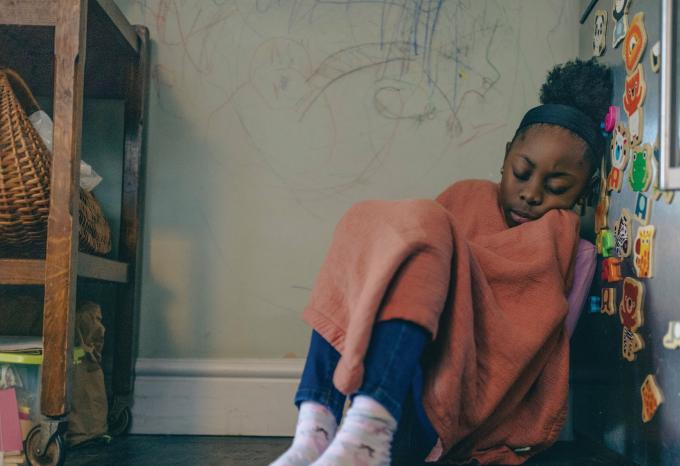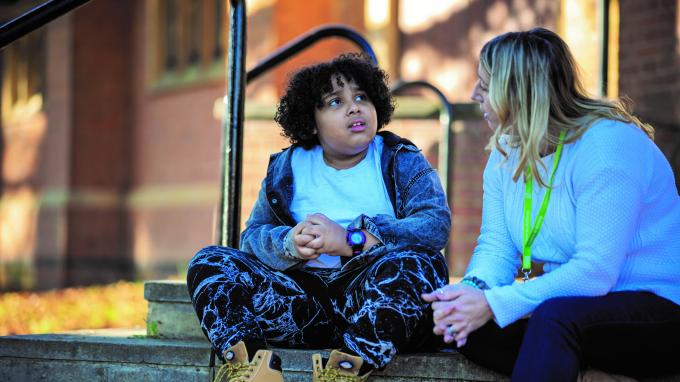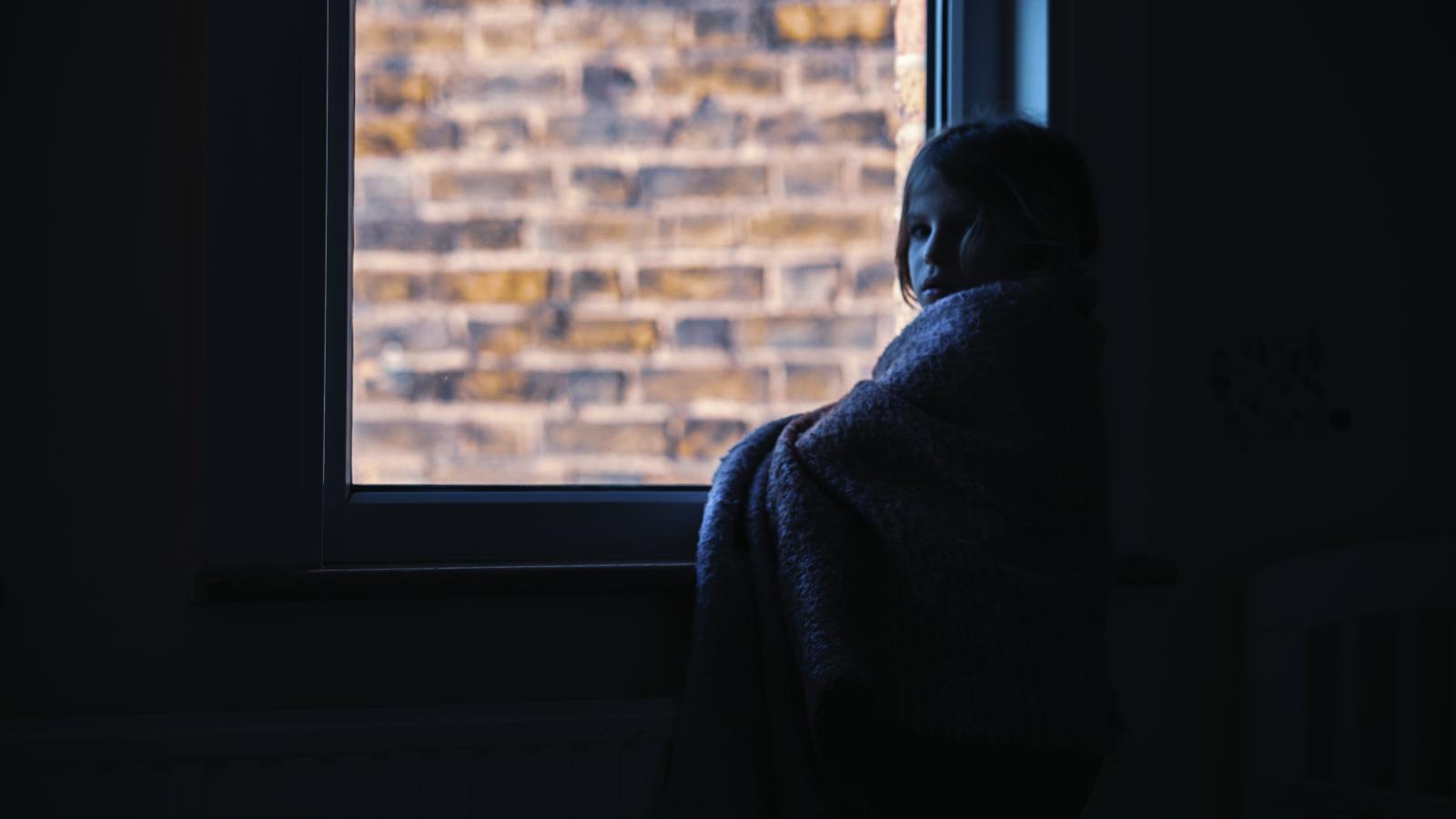We talk to Ivy, our Policy and Research Assistant, about her experience of working on a placement at Barnardo’s and supporting our child poverty campaign. She shares advice about how other young people can get involved with our work.
How did you land a placement at Barnardo’s?
The university I attend offers a placement year for every course.
As a Sociology student, I have a huge amount of interest in both policy and social research. When I saw that Barnardo’s had a listing for a Policy and Research Assistant, I knew pretty much immediately that this would be an amazing opportunity for me. I was really determined to get the role and spent a lot of time looking through the website and reading several of the recently released policy briefings in preparation for the interviews, so I could talk about them in my answers to questions.
The role has been even better than I ever could have imagined – it’s funny looking back at how long I spent on the recent reports section of the website and now I’m a co-author of one of the listed reports: our research ‘No Crib for a Bed: the impact of the cost-of-living crisis on bed poverty’!
What does the Policy and Public Affairs team do?
We call for improvements to the law, policy, and professional practice informed by the experiences of the children and young people we support and our own evidence-based research.
To make sure that the actions we recommend are as effective as possible, we do evidence-based research and share it with decision-makers and others working to help change children’s lives and the systems around them for the better.
Nobody knows better than children and young people what their lives are really like, but they might not always feel comfortable speaking out, especially if they’ve had difficult experiences in the past. We're committed to supporting young people to share their experiences and insights about the laws, policies, practices, and systems that affect them. We amplify their voices in our research and influencing work amongst decision-makers across the four nations of the UK.
What have you learned about politics in the UK and how people, particularly young people, can get involved if they wish to influence change?
I think it’s important to understand that progress on these issues can move slowly. If you always expected the problems you campaign on to end as soon as your research was published, you’d get burned out. That being said, we have an important deadline to work toward, and it’s approaching fast. The Household Support Fund is one of the most important pillars of funding for the crisis support families in need rely on, but it’s set to run out at the end of March 2024.
The Household Support Fund is one of the most important pillars of funding for the crisis support families in need rely on, but it’s set to run out at the end of March 2024.
There’s a lot of work being done to push for the renewal of this fund so families aren’t left unable to access support - if the funding isn’t renewed there will be too large of a gap for charities and other third sector organisations to fill.
I hope that the research I’ve helped produce is listened to by Parliament, alongside all of the other work being done on the Household Support Fund.
I think there’s a way for anyone to be involved, no matter what kind of person you are. At Barnardo’s we offer a lot of great volunteering opportunities that are perfect for anybody that feels motivated, and like they want to be the change they want to see in the world. You can volunteer in a local shop, in our offices, by fundraising for us and at our services. You can even volunteer through the Duke of Edinburgh Award if you’re 14 or over. Gaining on-the-ground experience of social issues will teach you so much more than simply reading about it.
Gaining on-the-ground experiences of social issues will teach you so much more about an issue than simply reading about it.
Ivy
Barnardo's Policy and Research Assistant
Obviously, not everybody has that much time. One thing I’ve learned while on placement here is how just signing up to charity newsletters and signing petitions does so much more than you might think it does. You might only be one signature on a petition, or one person that emails their MP, but I’ve watched how quickly those actions add up for a larger campaign.
The research you worked on was about bed poverty. Why should people care about this issue?
Bed poverty is one aspect of child poverty. Whilst working on the No crib for a bed report, we found that families are having to prioritise essentials such as food, heating and electricity over things like replacing mouldy bedding or fixing a broken bed for their child.
I think looking at this specific issue is a really good way of furthering the conversation about child poverty in general. The systemic issues that some families face are felt in every aspect of their lives, including the parts those unaffected might not even think about. Everybody deserves a safe place to sleep, but young people especially need a good night’s sleep to participate in school, socialise with their friends, and even for healthy development as they grow up.
What did you discover about bed poverty during your research that will stay with you?
The thing that will stay with me the longest is just how widespread bed poverty really is.
Our polling with YouGov showed there are over 1 million families with parents who had to give up their own beds so their children had somewhere to sleep in the last 12 months.
As part of my work with Barnardo’s, I got to see what this means for families up close, as I did several interviews with people who work at the services.
The Barnardo’s practitioners I spoke to all painted such a clear image of what this issue means for families they support. One of the stories I’m always going to remember is where a family was left unable to afford their children’s beds after their dad was paralyzed by a sudden illness a year before. The family had to move house so that they could have a hospital bed downstairs, and the children were sleeping on mattresses on the floor.
One of the children was only eight years old and she was suffering from panic attacks because of the situation, while her older brother was having behavioural problems at school. Once we were able to provide them with beds, these issues were resolved – a good night’s sleep is so important for children. It made me realise that bed poverty has enormous effects on the health and wellbeing of children, especially for their mental health.
How is the cost-of-living crisis impacting you or the young people you know?
While I’ve been working here, one of the projects I was able to support with was the Barnardo’s partnership with Co-op. As part of the partnership, we published research that I think sums up the experience I and everyone my age around me is having. The data showed that nine in ten (89%) young people say ‘having enough money to cover basic needs’ is now an aspiration in life, and it’s definitely true. A lot of conversations I have with my friends are about how expensive everything is.
I think part of the fun of student life is that you’re learning to navigate the world and manage money independently. But on almost any university campus right now there are far too many conversations happening about things like not being able to afford fresh fruit or keep the heating on in the winter.
How will your time at Barnardo’s inform the rest of your studies?
I’m never going to forget the work that I’ve done here, and the lessons I’ve learned. It’s one thing to learn about the theories and history of policy perspectives, but getting to interact with the systems written about so closely teaches you something else entirely. I will be writing my dissertation next year, and being able to incorporate my hands-on knowledge of how policy affects people’s lives has definitely provided me with a much deeper understanding of the issues.

No child should grow up in poverty
More and more children are going hungry, without a bed to get a restful night sleep, or a warm home. We need your help to ensure families can go to sleep in warm beds with full stomachs.

Our policy work
We call for improvements to the law, policy, and professional practice informed by the experiences of the children and young people we support and our own evidence-based research.

Get involved
You can help us change the lives of children in the UK who need it most.

